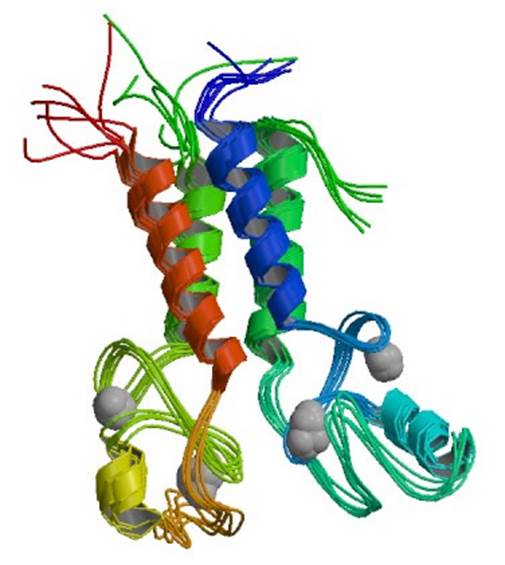Does fate have a deadline?
Down at his Duke lab back in 2003, Dr.
Jirtle was on to something. He suspected that smart lifestyle choices could
affect a person's DNA. But he also thought there must be a critical time for
when epigenetic behavior can be set. Turns out he was right.
With a deceptively simple experiment, he
showed that a woman's risk of disease could be affected by what her mother
consumed while pregnant. Here's the science bit: in an animal study, Jirtle
studied two groups of pregnant mice, both of which carried a gene that made
them yellow, obese, and prone to diabetes and cancer. He fed one group
grain-based mouse food; the others got the same, plus folic acid, vitamin B12,
and a cocktail of suspected epigenetic- boosting compounds. For everything
that's known about DNA, both groups should have birthed chunky, yellowish mice.
They didn't. The animals born to the second set were slim and brown, even
though they'd inherited the disease-prone gene.

With
a deceptively simple experiment, he showed that a woman's risk of disease could
be affected by what her mother consumed while pregnant.
Jirtle then repeated the experiment, this
time with pregnant mice that had been exposed to the known carcinogen bisphenol
A (BPA). The BPA flicked on the obesity gene and the rodent mums gave birth to
fat, yellow babies. However, when Jirtle fed one group of BPA-exposed mums that
same nutrient-rich diet, their offspring were born brown and trim. Like some
crazy environmental tug-of-war, the BPA that turned on the gene was
counteracted by a diet that turned it off again... and the science world went
wild.
"We now have solid evidence that our
susceptibility to diseases such as obesity, diabetes and cancer is influenced
by what we were exposed to very, very early in our development," says
Jirtle. But don't freak out if your mother swilled the occasional gin and tonic
while you were in the womb. "During development, epigenomes are susceptible
to environmental influences and can become set for life," explains Robert
Waterland, who studies developmental epigenetics at Texas' Baylor College of
Medicine. "But it may be possible to reprogram your epigenetic mechanisms,
even in adulthood."
Redirecting your DNA
Let's say your mum was a smoker. Every time
she sparked up, she was igniting epigenetic behavior, opening the door
millimeter by millimeter for disease. Researchers recently showed for the first
time that smoking can result in epigenetic changes associated with the
development of cancer. This epigenetic change may have been passed down to you,
even if your mum never smoked a cigarette while she was pregnant and you have
never touched one yourself. In fact, the epigenetic change may go further back
than your mum.
That said, you're not absolutely destined
to get lung cancer. Just like Jirtle did with his mice, you can fight what you
inherited. Scientists are beginning to work out specific solutions, but they do
know that diet appears to be one of the biggest factors. For example, a 2010
study published in Cancer Research found that just 12 servings of leafy greens
a month reduced some people's risk of developing precancerous lung lesions by
20%; adding a daily multivitamin slashed that risk by an impressive 50%.
Certain nutrients appear to turn tumor-squashing genes back on, and not just in
the lungs.

Every
time she sparked up, she was igniting epigenetic behavior, opening the door
millimeter by millimeter for disease.
"Diet plays a big role in putting you
at risk of cancer, or preventing you from getting it, because 95% of cases
aren't solely genetic, they may be caused by epigenetic influences," says
Goel. In other words, it's not always troublesome DNA that makes you sick; it
could be a misfiring epigenome. A possible exception is with the inherited BRCA
gene mutations that are known to greatly increase a woman's risk for breast and
ovarian cancers. In these cases, the DNA is missing a genetic component;
there's nothing to turn on or off. Goel, who studies gastrointestinal cancers,
is currently focused on cur cumin, a powerful antioxidant and anticancer agent
found in the spice turmeric. His preliminary research shows the orange spice
could activate certain tumor-suppressing genes. (See, we always knew that
curries were good for you really.)

BRCA
stands for the Breast Cancer Gene. Below is a summation from the mayo clinic.
Beyond dietary research, scientists are
trying to decode the myriad ways exercise and toxic chemicals give marching orders
to DNA. Until they do, though, it's safe to say you should embrace the former
and avoid the latter. And it appears stress can also play an epigenetic part.
"It's quite possible that lifestyle stressors can change epigenetic marks
inside the brain," says researcher James Potash, head of the department of
psychiatry at the University of Iowa. Are you ready for the real shocker?
"Some of those epigenetic changes can persist for a long time, which might
explain why major childhood stress can make you more vulnerable to depression
20 to 30 years later," he explains.
Untangling the role of epigenetics in mood
disorders could help scientists develop better drugs and intervention for
patients and their offspring. Indeed, unraveling the role epigenetics plays in
just about every major health condition could lead to a biological revolution.
"If we can figure out how to change epigenomes, we might be able to change
the behavior of a diseased cell and force it back into a more normal
state," says Sharon Dent, director of the Center for Cancer Epigenetics at
the MD Anderson Cancer Center at the University of Texas. "And the ability
to change cell behavior could provide more effective and less harmful
therapies." As Professor Nessa Carey says, breakthroughs in epigenetics
mean we are finally learning to read our genetic ‘instruction manual' better.
This is the great hope: one day, you could
switch off the genes that promote diseases and switch on those that prevent
them as easily as you can switch a light bulb on and off.